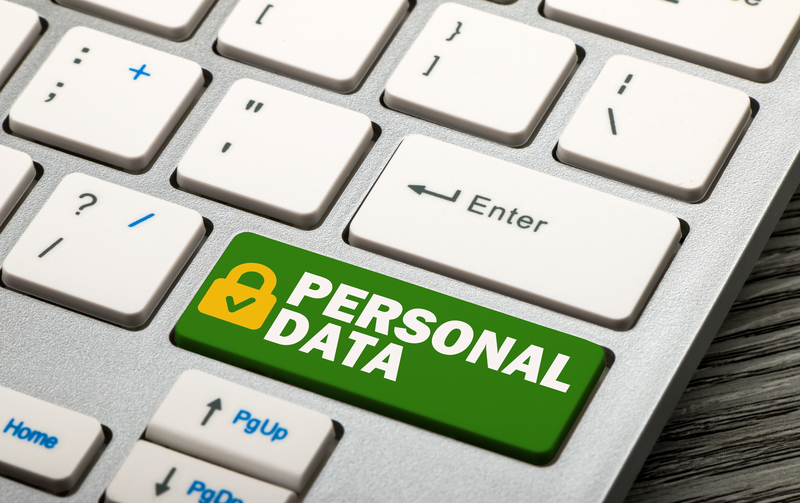
AI data transparency shapes shopping behavior
A new survey of over 1,000 US consumers looks at how holiday shopping behavior is impacted by brand management of personal data in AI systems.
The study from Relyance AI suggests Americans are entering the gifting season emotionally depleted and digitally exposed, with most planning to shop online. But feeding more personal data into systems during periods of high stress and emotional depletion sets the stage for a fragile purchasing environment.

Would you swap personal information for a bargain?
Ahead of Black Friday a new study shows that, while 95 percent of Americans are concerned their data could end up in a breach, 78 percent are still willing to share personal information for discounts, perks, or free shipping.
The report from Incogni, based on a study of over 1,000 US adults, finds that volunteering personal information for discounts or access to content and rewards has become so routine that few likely consider the implications before doing so.

New tools help prevent leaks of personal data
One of the risks AI teams face is sensitive data lurking where it shouldn't be -- risks that are increasing as the volume unstructured data grows across all industries, a situation made worse still by GenAI.
Unstructured data management specialist Komprise is launching new sensitive data detection and mitigation capabilities to help organizations prevent the leakage of PII and other sensitive data to AI and reduce the risk of potentially ruinous data breaches.

AI-powered Chrome extensions are watching you…
It's not exactly Big Brother, but a new analysis of Chrome extensions from Incogni reveals that 67 percent collect user data, and 41 percent collect personally identifiable information (PII), including sensitive details like credit card numbers, passwords, and location data.
Extensions like Grammarly, which make writing almost anything effortless, or Vetted, which act as online shopping assistants, are quickly becoming essentials of everyday life. But because many users trust Google's ecosystem, they also assume that third-party extensions vetted through the Chrome Web Store are equally safe.

38 percent think personal data theft is unavoidable
As we carry out more and more of our everyday transactions online, so the risk of falling victim to cybercrime increases too.
New research from CybSafe and the National Cybersecurity Alliance shows that 61 percent of respondents worry about becoming cybercrime victims and 38 percent believe personal data theft is unavoidable.

Is it safe to share personal details online?
In one way or another, we invariably find ourselves sharing personal details online. Whether it's signing up for a newsletter, registering to access a website, or simply making an online purchase, our presence online is a constant. So how do we keep our info safe when we're buzzing around online?
And how much trust can we place in the websites where we share our personal details? Let's delve into strategies to safeguard our information and ensure our safety when sharing personal details online.

Your 'personal' personal information
Let’s talk about the personal information that belongs to you, your personal personal information. What is your level of tolerance for the amount of data collected about you? Are you willing to provide your email to get a 15 percent discount? What if it’s 50 percent? What if it’s your phone number, too? These are all questions that we are faced with almost everyday and everyone has a different opinion.
One of the biggest problems is knowing what you are signing up for, and what personal information may have already been obtained. When you first visit a site, cookies and other technologies can automatically collect your IP address, set trackers, and more. Once you enter your personal information into other places, you may unwittingly allow yourself to receive direct marketing, allow the business to sell your information, or allow it to be shared with others for purposes you were not anticipating.

Consumers want personalized experience but worry about sharing the data that drives it
European consumers want the personal touch in marketing communications, but are reluctant about sharing the data that enables it.
A new report, from customer engagement platform Twilo, shows 51 percent of European consumers say they will become repeat buyers after a good personalized experience, while 49 percent will tell a friend or family member, and 33 percent will become a member of the brand's loyalty program for deals and rewards.

Law firms are struggling with their cybersecurity practices
Law firms store some of the most sensitive information available regarding material business transactions, intellectual property and personal data.
But a new study from the International Legal Technology Association (ILTA) and Conversant Group, reveals a disconnect between legal firms' IT and best practice cybersecurity.

Personal details account for almost half of stolen data
Personal employee or customer data accounted for nearly half (45 percent) of all data stolen between July 2021 and June 2022 according to the latest report from Imperva.
Companies' source code and proprietary information accounted for a further 6.7 percent and 5.6 percent respectively. On a more positive note, the research finds that theft of credit card information and password details has dropped by 64 percent compared to 2021.

How much is your data worth?
The birth of the Internet in the 1990s and its subsequent expansion into every aspect of our lives began a digital revolution that has since refused to slow down. With it has come unimagined functionality, equipping us with instant access to information and communication. Those born before the Digital Enlightenment could never have imagined the power to cast aside unanswered questions with a mere "Google". Gazing across the digital expanse with our infantile stare, we failed to notice another set of eyes looking back at us. Those eyes belong to the world’s largest companies -- Big Tech giants like Facebook and Google -- who are continuously monitoring our movements across the Internet.
Every time we open a website or App, our journeys are tracked and hunted down by a pack of algorithms designed to determine our interests -- products, ideas, and brands that we may feel positively towards. This data is coveted by advertisers; it is the elixir that enhances their powers of persuasion and consumer targeting and, inevitably, sales. This insatiable demand has propelled Big Tech’s rampant profiteering and extraction of consumer data.

Your personal data has become an AI training manual and you're not getting it back
Art imitates life, that we all know. But what if art imitates your personal life, your personal likeness and does it so well that the line between what is real and surreal blurs?
Unbeknownst to us, we are becoming models for state-of-the-art AI technology that trains on terabytes of poorly filtered data scraped from all over the web. This data can include our personal photos, medical images, and even copyrighted content -- basically, anything ever posted online.
